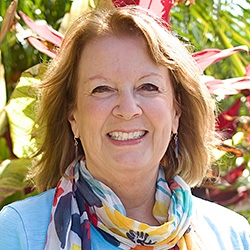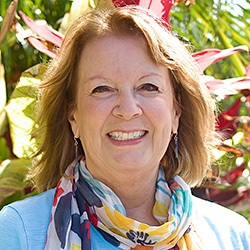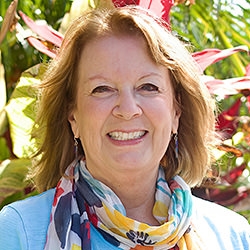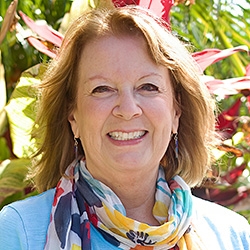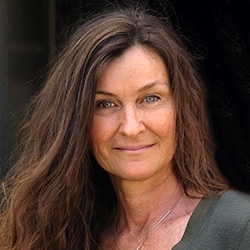

Search Results: honesty
-
Trainer Tip: Mary offers a perspective on how to know if our need for honesty is being met.
-
Trainer Tip: Notice an opportunity today to use honesty as a means to connect with someone else. Consider what type of honesty might stimulate pain in others.
-
Trainer Tip: When we withhold our truth or lie, we can create emotional and physical distance in our relationships. By being honest, we can strengthen relationships. And when someone doesn’t appreciate your honesty, try empathizing with them. It can help to notice how your actions stimulate feelings in other people -- even as they are not the cause of their feelings.
-
Making a decision or boundary that invites someone to be honest about their feelings can be difficult. Remember that lack of authenticity may be due to lack of awareness, inner conflict, or fear of conflict, rather than dishonesty. Offer empathy and reassurance and invite more conversation. Approach with compassion and curiosity to naturally invite more honesty.
-
Trainer Tip: In Nonviolent Communication, we see expressing honesty as a gift of our authenticity, and a chance for others to support us in getting our needs met -- this can flourish and deepen our relationships. We can notice and act on opportunities to be honest with the components of OFNR (Observations, Feelings, Needs, and Requests).
-
Exploring how empathy and honesty work together as essential parts of NVC practice.
-
Does unworthiness keep you from expressing vulnerably and honestly? Afraid of being "found out?" Join CNVC Certified Trainer Arnina Kashtan as she explores this topic with a workshop participant to discern stories from needs, recognize the tension between self-acceptance and personal development and sit with the discomfort of self-acceptance.
-
What do you do when you are thinking that it's not "emotionally safe" to speak honestly? Join CNVC Certified Trainer Arnina Kashtan as she explores this topic with a workshop participant.
-
How we choose to communicate can either open or shut down connection.
-
Even in a conflict, you can offer emotional safety without being enmeshed -- and you can do this without sliding into strategies to gain power over another. You can prioritize connection, express your intention, make space for mutuality, honestly reveal what you care about and propose a way forward. This means caring for your needs regardless of their response -- and mourning if their response isn't what you want. Read on for more.
-
-
-
It's normal for us to keep something inside, avoiding sharing it with someone else as the risk may feel too high. Maybe they will reject me, or be offended and not speak to me again? It can be difficult to know when to share your truth and when to keep it inside. In this episode we layout some useful strategies that will help you speak your truth, while still keeping the connection.
-
Kelly Bryson explores courageous honesty and how truth shared openly deepens connection.
-
Join Jim Manske for practice exercises that will help you navigate away from reactivity toward a more compassionate way of being in the world, and learn to express vulnerable honesty (scary honesty)
-
Jori and Jim Manske offer writing practices to help us become more firmly grounded in the authorship of our lives. That grounding helps us share ourselves with others more authentically and vulnerably(scary honesty)
-
Jori and Jim Manske offer a process they call "The Zero Step," encompassing the characteristics of warmth toward self and other, care for the vitality of both yourself and other(s), wonder/interest, vulnerability and empathy, which leads directly to connection requests and an openness to outcome.
-
Rodger Sorrow introduces us to "Connection Time," a practice for you and a significant other to deepen, broaden and mend your relationship with each other.
-
Join Jori and Jim Manske to explore, learn and practice the art of receiving the word "no," re-framing it from fear into fun.
-
Join Jori and Jim Manske to explore, learn and practice an NVC approach to mourning and celebration.
Quick Links

Stay in Touch!
We value your privacy, won't share your email address and you can easily unsubscribe any time.

